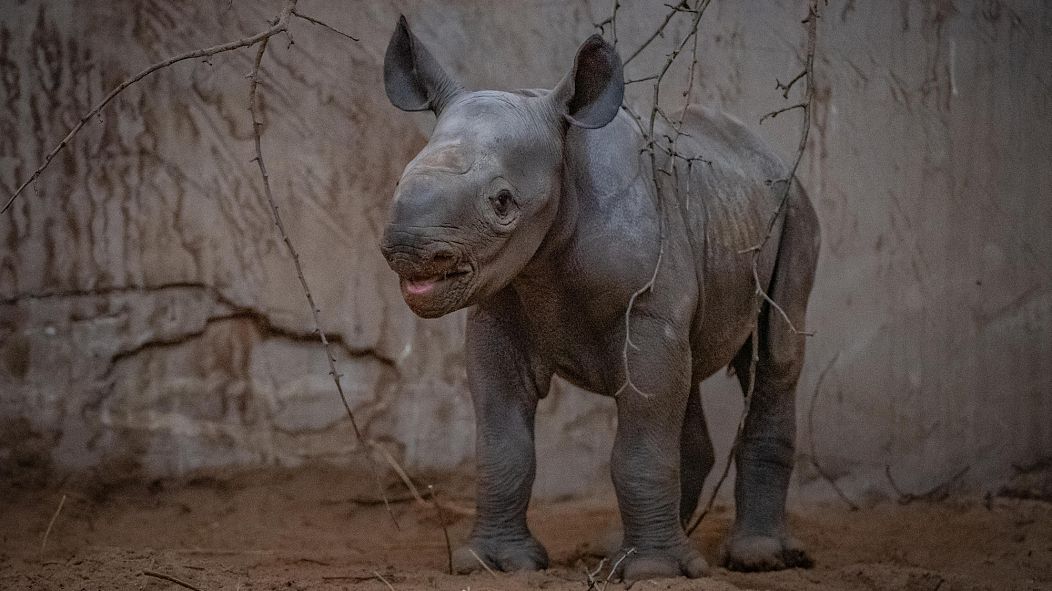The new calf is a major milestone for her species, as there are fewer than 1,000 eastern black rhinos left on earth.
Conservationists are celebrating after a critically endangered rhino was born at a UK zoo last week.
After a 15-month-long pregnancy, Ema Elsa the eastern black rhino gave birth to her first calf at Chester Zoo, one of Europe’s leading conservation centres. The birth was caught on the zoo’s CCTV system and the new baby was shown to be up on her feet and suckling from her mother just 10 minutes later.
“The birth of a critically endangered eastern black rhino is always very special,” says Andrew McKenzie, team manager of rhinos at Chester Zoo. “To be able to watch on camera as a calf is born is an incredible privilege - it, sadly, isn’t something that’s captured very often.
“Seeing the little one then get to her feet with a gentle nudge from mum; take her first tentative steps and suckle for the first time is then the icing on the cake. It really is heart-warming stuff.
“The whole team here is overjoyed. Mum and calf have bonded wonderfully and have been showing us all of the right signs,” McKenzie adds.
The new arrival is still without a name, so the zoo has launched a poll on Facebook to help christen the calf. Keepers have created a shortlist of three names: Kasulu (a town in Tanzania), Kaari (meaning ‘young daughter’), and Koshi (meaning ‘to try’).
A species under threat
There are fewer than 1,000 eastern black rhinos left on the planet, so the calf’s arrival is a significant milestone in the species’ continued survival. The biggest threat comes from the multibillion euro illegal wildlife trade, which is driving black rhinos to the brink of extinction.
The long-term future of the species is currently reliant on a carefully coordinated breeding programme, set up between different European zoos.
The aim is for Ema Elsa and her new calf to be reintroduced to Africa, in the hope that this can boost wild populations. Last year Chester Zoo transported a group of eastern black rhinos to Akagera National Park in Rwanda.
“These rhinos have been pushed to the very edge of existence and every single addition to the European endangered species breeding programme is celebrated globally,” explains McKenzie.
“It’s sadly no exaggeration to say that it’s entirely possible that we could lose them forever within our lifetime and the world’s most progressive zoos are very much part of the fight to prevent their extinction.”
The new calf’s birth is now the 12th eastern black rhino to be born at Chester Zoo in the past 20 years. The park is home to the only zoo-based animal endocrine lab in the UK, meaning keepers and conservationists have access to hormone-based insights which can be used to assist breeding.
Scientists working out of the lab have developed a technique to track rhinos’ fertility by analysing hormones in their dung. This method has been applied in Kenya, after experts from Chester Zoo helped set up a field lab in the country.
McKenzie says he hopes that Ema Elsa’s new baby will “highlight the perilous position that this species is in,” as well as encouraging more people to support their protection.
“We hope Ema Ela and her offspring, like others before them born into the European breeding programme, are one day able to make the journey back to Africa,” he adds.












